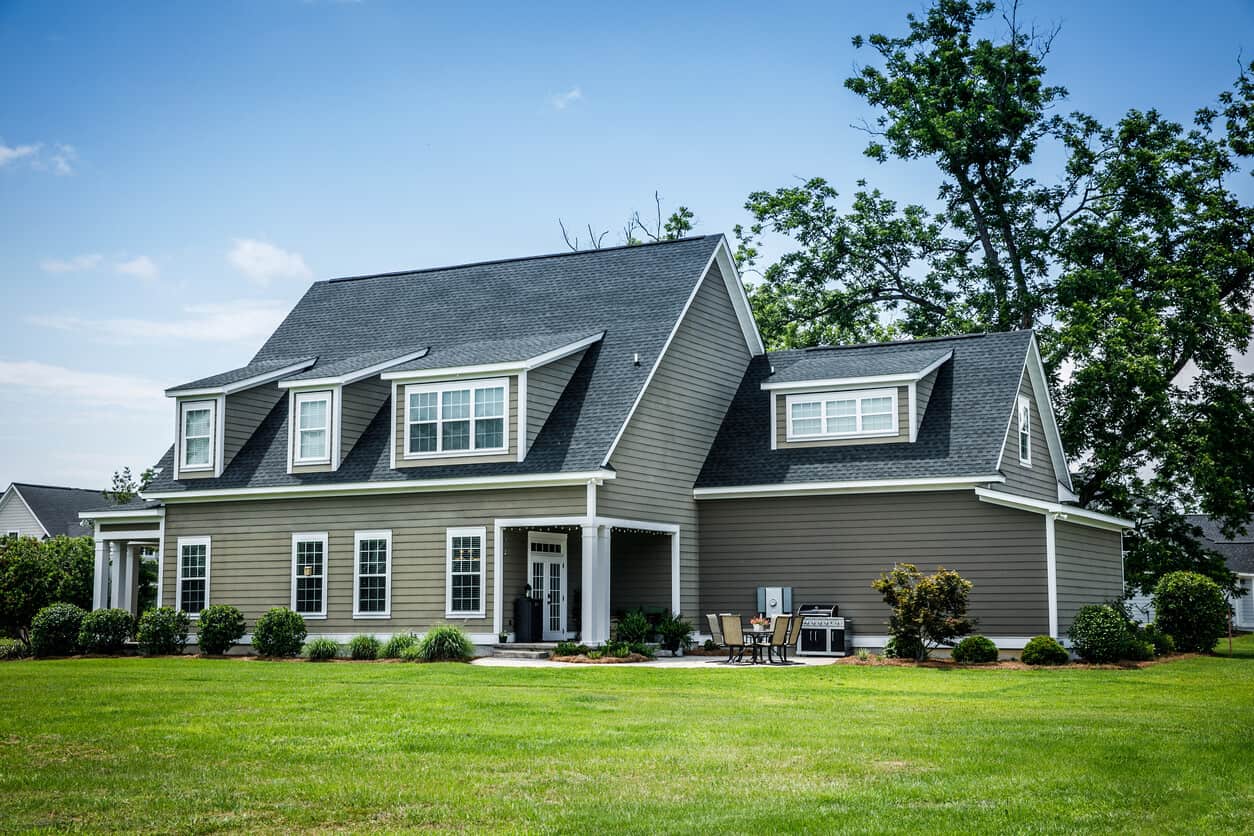Residing My House: What I Wish I Knew Before Starting

Embarking on the journey of residing in a new house brings about a myriad of considerations and challenges. In this guide, we delve into the crucial aspects of house residency that one should be aware of before taking the plunge.
From evaluating the perfect location to understanding home insurance, this comprehensive overview aims to equip you with the necessary knowledge for a smooth transition into your new abode.
Things to Consider Before Residing in a New House

When looking for a new house to reside in, there are several important factors to consider to ensure you make the right choice. From evaluating the location and neighborhood to checking the condition of the house, each aspect plays a crucial role in determining your overall satisfaction with your new home.
Location and Neighborhood
Before choosing a new house, it's essential to evaluate the location and neighborhood where the property is situated. Consider factors such as proximity to essential amenities like schools, supermarkets, hospitals, and public transportation. Additionally, assess the safety and security of the neighborhood to ensure a comfortable living environment.
House Condition and Potential Renovations
Another crucial aspect to consider is the condition of the house itself. Before making a decision, thoroughly inspect the property for any signs of damage or wear and tear. Look out for potential renovation needs such as plumbing issues, electrical problems, or structural damage.
Assessing these factors beforehand can help you avoid unexpected expenses and ensure a smooth transition into your new home.
Budgeting and Financial Planning for House Residency

When it comes to residing in a new house, budgeting and financial planning are crucial aspects to consider. Proper budgeting can help you manage your expenses effectively and ensure that you can afford the costs associated with homeownership.
Creating a Budget for Residing in a New House
Before you start the residency process, it's essential to create a detailed budget that Artikels all your expenses. This should include mortgage payments, property taxes, insurance, utilities, maintenance costs, and any other related expenses. Make sure to account for both fixed and variable expenses to get a comprehensive view of your financial obligations.
Saving Money for Unexpected Expenses
- Set up an emergency fund: Save a portion of your income each month in a separate account to cover unexpected expenses such as repairs or replacements.
- Regular maintenance: Conduct regular maintenance checks to identify and address any issues before they escalate into costly repairs.
- Compare insurance options: Shop around for homeowners insurance to find the best coverage at the most affordable rate.
- DIY projects: Consider tackling minor home improvement projects yourself to save money on labor costs.
Financial Aspects to Consider
|
1. Down payment |
Ensure you have saved enough for a down payment to secure a mortgage with favorable terms. |
|
2. Credit score |
Check your credit score and work on improving it if needed to qualify for a better interest rate on your mortgage. |
|
3. Closing costs |
Factor in closing costs such as attorney fees, appraisal fees, and title insurance when budgeting for your new home. |
|
4. Future expenses |
Anticipate future expenses such as renovations, upgrades, or furniture purchases when planning your budget for residing in a new house. |
Essential Home Maintenance Knowledge
When residing in a new house, it's crucial to have a good understanding of essential home maintenance tasks. Regular maintenance helps prevent costly repairs and ensures the longevity of your home.
Key Home Maintenance Tasks
- Inspecting and cleaning gutters regularly to prevent water damage.
- Checking for leaks in plumbing and fixing them promptly.
- Testing smoke detectors and carbon monoxide alarms monthly.
- Changing HVAC filters every 1-3 months for efficient operation.
- Sealing cracks and gaps in windows and doors to improve energy efficiency.
Importance of Regular Maintenance
Regular maintenance not only helps in preserving the value of your home but also ensures a safe and healthy living environment for you and your family. Ignoring maintenance tasks can lead to bigger problems that may require costly repairs down the line.
Tips on Creating a Home Maintenance Schedule
- Make a list of all the maintenance tasks needed for your home.
- Assign specific tasks to each month or season for better organization.
- Set reminders on your calendar or smartphone for regular maintenance checks.
- Consider creating a budget for maintenance expenses to avoid unexpected costs.
- Consult with professionals for complex tasks or inspections to ensure thorough maintenance.
Understanding Home Insurance and Legal Obligations
When it comes to residing in a house, understanding home insurance and legal obligations is crucial for a smooth and secure living experience.
Importance of Home Insurance
Home insurance provides financial protection against unforeseen events like natural disasters, theft, or accidents. It ensures that you are not left with hefty repair or replacement costs in case of emergencies.
- Types of Home Insurance:
- Homeowner's Insurance:Covers the structure of your house, personal belongings, and liability in case someone is injured on your property.
- Renter's Insurance:Covers personal belongings and liability for renters.
- Flood Insurance:Protects against flood damage, usually not covered by standard policies.
- Earthquake Insurance:Covers damages caused by earthquakes, essential in high-risk areas.
Legal Obligations
Residing in a house comes with legal responsibilities that must be fulfilled to avoid penalties or legal issues.
- Property Taxes:Homeowners are required to pay property taxes to local governments based on the assessed value of their property.
- Permits:Certain renovations or constructions in your house may require permits from local authorities to ensure compliance with building codes.
Transferring Utilities and Updating Legal Documents
When moving into a new house, it is essential to transfer utilities and update legal documents to ensure a seamless transition.
- Utilities:Contact utility companies to transfer services like electricity, water, gas, and internet to your name before moving in.
- Legal Documents:Update your driver's license, voter registration, and mailing address with relevant authorities to reflect your new residence.
Conclusion

As we wrap up our exploration of what to know before residing in a new house, it becomes evident that preparedness and foresight are key to a successful transition. By understanding the essentials of budgeting, home maintenance, and legal obligations, you can embark on this exciting journey with confidence and peace of mind, knowing that you are well-equipped to tackle any challenges that may arise.
Helpful Answers
What are the key factors to consider when choosing a new house?
Factors such as location, neighborhood, and the condition of the house are crucial to evaluate before making a decision.
How can I save money for unexpected expenses related to house ownership?
Creating a budget and setting aside a contingency fund can help prepare for unforeseen costs.
What are some essential home maintenance tasks for new residents?
Regular maintenance tasks like HVAC system checks and roof inspections are important to prevent costly repairs.
Why is home insurance important for new homeowners?
Home insurance provides financial protection against unexpected events like natural disasters or theft.
What legal obligations should I be aware of when residing in a new house?
Legal obligations like property taxes, permits, and utility transfers are important considerations when moving into a new house.

